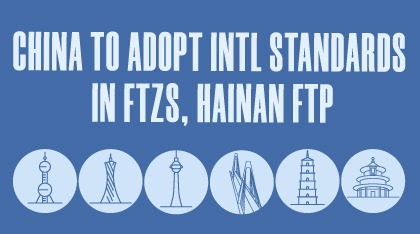Dutch multinational health technology company Royal Philips is doubling down on its long-term commitment to China, banking on the country's accelerating shift toward smart, digital and sustainable healthcare under the Health China 2030 blueprint and its high-quality development agenda.
"The China market is very important for Philips. It's around 10 percent of our total global revenue," Roy Jakobs, CEO of Royal Philips, said during a recent interview with China Daily. "We are very excited about the strength and the outlook of the Chinese economy."
Despite ongoing global uncertainties and rising geopolitical tensions, Philips remains optimistic about China's economic prospects — betting on opportunities arising from China's aging population, continued healthcare reform and rapidly advancing digital ecosystem to drive sustainable business growth.
Jakobs noted signs of stabilization in the economy, supported by both consumer activity and healthcare demand.
"We see consumer confidence and consumer spending rising, which is really encouraging," he said. "On the healthcare side, we see a strong fundamental need for supporting patients and the growing elderly population in China. We see healthy fundamentals in China. And we believe this will strengthen now and in the years to come."
Having established its first joint venture in China four decades ago, Philips has embedded local research and development and innovation into its China strategy. The company currently operates five innovation hubs in the country, with approximately 90 percent of its products sold in China being locally manufactured and delivered.
"We see China as a source of inspiration for innovation and for talent, and it's an ecosystem that we leverage for the benefit of global delivery of products and services," Jakobs added.
"There are around 10 million engineering talents graduating in China every year. China's strong clinical base — which includes strong and large-scale hospitals that serve numerous patients — provides rich opportunities to accumulate research interests, experience and data. And China's strong supply chain enables innovation and competitive product development."
So far, the company has more than 7,000 patents in China, and the company has said that it will strengthen its innovation hubs and establish a new one in Beijing.
With rising demand for artificial intelligence-powered medical solutions and growing momentum in green and digital hospital development, Philips is doubling down on its "In China, For China" strategy, while also leveraging Chinese innovations for global application.
"We look at the specific consumer needs in China. At the same time, we use China as a base to provide services to the world," Jakobs said. "If we think about the opportunities that China offers, the scale of patients actually gives us a very interesting pool of data and experience and clinical evidence that we can use to develop relevant solutions for China and for the world."
Philips is ramping up investment in AI development to address healthcare bottlenecks, including the significant gap between growing demand and insufficient supply.
"With the application of the latest technology of software and AI, we can scan more patients, and treat more patients with minimally invasive therapies in a day, in a week in the hospitals as well as outside of the hospital," Jakobs said.
In parallel, Philips will continue to enhance its hardware capabilities in China. "We keep expanding and seeking how we can deliver the best products and services to the Chinese market from Suzhou, Jiangsu province, which is a very important site for us to develop the latest hardware," he said.
According to the Government Work Report, China will strive to develop new quality productive forces in light of local conditions and accelerate the development of a modernized industrial system.
Li Chao, chief economist at Zheshang Securities, said developing new quality productive forces will be key to boosting China's long-term growth potential, with AI and other emerging fields set for intensified development.
Jakobs said China's push to cultivate new quality productive forces aligns with Philips' strategy to scale up local innovation and bolster its innovation infrastructure in the country.
"The strength of the Chinese market from an innovation perspective is that the government is supporting the ecosystem," he noted.
Looking forward, Jakobs sees a steady macroeconomic outlook and clear policy direction — particularly around innovation, sustainability, and healthcare digitization — as reasons to remain bullish on the Chinese market.
"China is a very significant country with a huge population in need of a sufficient and good healthcare system," Jakobs said. "We need to invest in productivity to serve more patients, and deliver better and more care."






